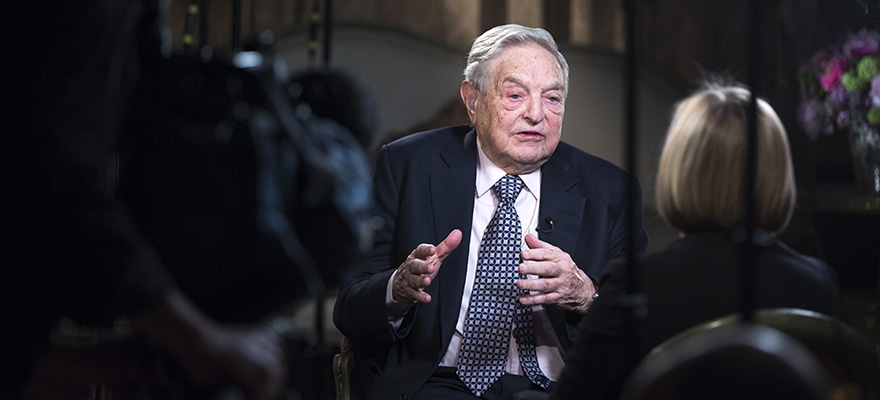Billionaire George Soros lost huge amounts of money following the US election vote after Americans surprisingly elected Donald Trump as the 45th president of the Unites Satiates.
To unlock the Asian market, register now to the iFX EXPO in Hong Kong
People familiar with Soros' trading told the Wall Street Journal that he lost nearly $1 billion as a result of the stock-market rally, while the 85 year-old investor doubled his bets that stocks would fall. However, because of his generally bearish outlook on world markets, the legendary hedge fund manager did profit from other investments in different sectors, both financial and industrial.
The broader portfolio held by Mr. Soros performed better as Soros Fund Management LLC, which manages about $30 billion, gained 5% over the year, according to the Journal.
Soros won a place in finance history by heavily betting that sterling would fall and was dubbed the man who “broke” the Bank of England in 1992 when he bet against the pound and made a reported $1 billion.
Since Donald Trump's unexpected victory, the value of US stocks, bonds and currency have all shot higher on expectations that the president-elect’s promised reforms, tax cuts and spending plans could deliver strong growth to the U.S. economy.
The Trump Rally
While the stance proved a mistake for the business magnate, Stanley Druckenmiller, Soros' former deputy who worked at his firm until 2000, was much more prescient and anticipated the market’s gains.
According to the Journal, Mr. Druckenmiller predicted different scenarios to an investor and expressed a bullish position on the American economy following the election. He said that if Clinton emerged victorious the stock market likely would rally initially but then would fall, and the opposite result would likely occur if Trump won the election. The bet seems have paid off, racking up sizable gains that allowed his Duquesne Capital Management fund to gain 10% in 2016, according to people close to the matter.
Mr. Soros wasn’t the only investor who seems to have been surprised by the Americans’ shock decision to elect Trump or the strong gains of financial markets in the wake of Trump's victory. Most Wall Street analysts believed that a Trump win would bring uncertainty and cause a sell-off. Actually, the markets’ reactions ahead of the vote provided a false preview of how it might respond to the outcome of November's election. More specifically, the bearish moves in stocks, US dollar and commodities in response to FBI's letters to Congress on Clinton’s email probe suggested that markets were likely to react negatively to a Trump electoral victory.

















